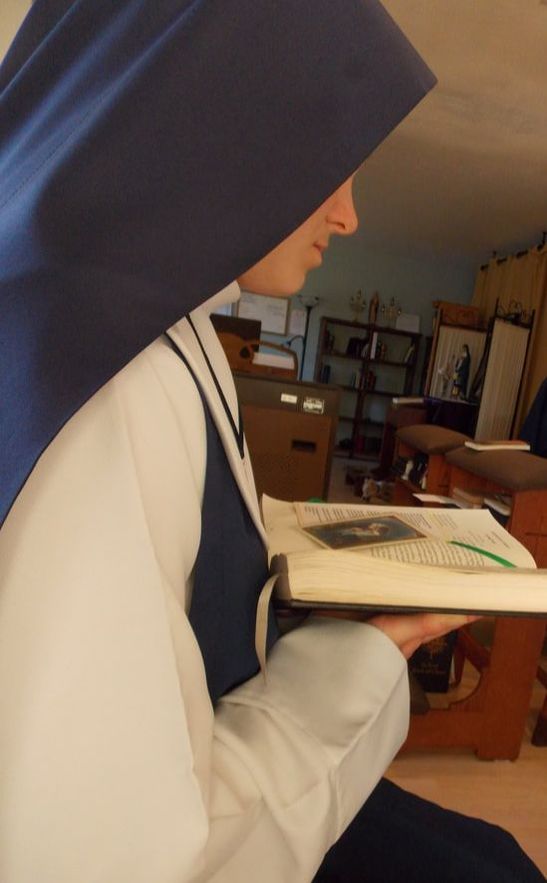|
The psalms, according to Fr. Garrigou-LaGrange, are a school of contemplation, of self-oblation, and of holiness. These fruits grow and flourish when the psalmody prayed has both body - harmoniously arranged structure bringing the tranquility of order - and soul, the interior devotion rising toward God like a flame. The very parallelism of the psalms when chanted or prayed in the tradition of the Church, two or three phrases punctuated with a pause in the middle, gives a natural body to the prayer. This harmonious body is disrupted by undue haste, depriving the spirit its ability to rest in God. Our community takes great care to preserve this body in our prayer so that soul may flourish. St. Ambrose compares liturgically prayed psalms to the peaceful breaking of waves upon the shore:
...to the recently wounded [soul] it brings speedy improvement; the diseased it treats, and the unharmed it preserves. On the whole, it effaces as far as possible, the passions, which subtly exercise dominion over souls during the lifetime of man, and it does this with a certain orderly persuasion and sweetness which produces sound thoughts. Each period of liturgical prayer like an oasis which refreshes and strengthens us for His continued service. It is a school of all the virtues, particularly fostering charity, the queen of virtues. Our communal prayer is our path to contemplative prayer, the greatest service we render the world, and the source of our apostolic fruitfulness. This prayer is particularly nourished by the psalms, those great prayers of the Church with express every human emotion, reflect every human thought, and continually direct us to God.
Comments are closed.
|
Categories
All
Archives
March 2024
|
Marian Sisters of Santa Rosa




 RSS Feed
RSS Feed
